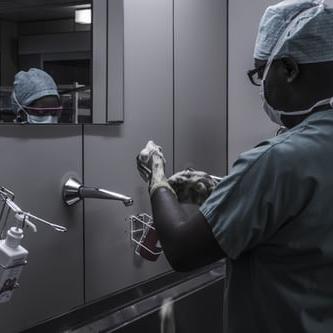Pathologist (Patholoog)
Information on this skill...
A pathologist is a medical specialist who specializes in pathology. In short, the field of pathology can best be described as the examination and diagnosis of diseases, including the cause of diseases. For other doctors and medical specialists, the work of a pathologist is important because in some cases they can only start treatment when the clinical picture has been determined by the pathologist. As a pathologist, there are different specializations, all of which have common ground with each other, such as clinical pathology, pathophysiology and special pathology. A pathologist performs tissue and cell research for his or her work in order to be able to determine diseases. Consider, for example, examining a tumor to determine whether it is benign or malignant. The work of a pathologist can be regarded as highly specialized and important work. It is the pathologist who is responsible for examining and studying tissue from patients, in order to be able to make the correct diagnosis on the basis of the examination, so that a treatment plan can be drawn up. A pathologist will generally often use a microscope to look for cancer cells, for example. A pathologist can also be called in to perform sections on deceased persons, in order to determine the cause of death of patients. As a pathologist, you hardly come into contact with patients yourself because it is the treating doctors who provide the necessary tissue. As described earlier, pathologists are also responsible for performing autopsies. Autopsies are important to find out more about the clinical picture afterwards. Another important reason to perform autopsies is to check that medical specialists have established the correct diagnosis and thus performed the correct treatment.
Another area of work of a pathologist can be to conduct research on deceased persons who have died an unnatural death. In that case, one also speaks of a forensic pathologist. A forensic pathologist specializes in determining causes of death by performing autopsies. Autopsy is also known as autopsy. Autopsy as a pathologist does not only occur with regard to forensic research. If patients have died of a disease, a pathologist can also perform an autopsy to determine afterwards whether the diagnosis made turned out to be the correct one. By performing tissue research on deceased patients, it can therefore be further investigated what exactly caused the disease. A pathologist who performs autopsies generally works with one or more autopsy assistants.
WHAT DOES A PATHOLOGIST DO
It is a misunderstanding to think that a pathologist only works with deceased patients or persons because this is not the case. As a pathologist, you work within pathology that is a broad field and that consists of various types of specializations, such as gastrointestinal-liver pathology, skin pathology, pediatric pathology and neuropathology. In the clinical pathology department, tissues and individual cells of patients are examined with a microscope to determine the nature of the disease or abnormality. Pathologists then look for the causes and consequences of diseases so that other medical specialists such as rheumatologists, oncologists and neurologists can treat their patients appropriately. Monitoring the effects of the treatment is also a task that belongs to the pathologists. GPs can also have tissue examined by a pathologist. Think, for example, of general practitioners who have removed a skin abnormality from patients.
WHAT DOES A PATHOLOGIST DO:
- Studying and examining tissue from patients;
- Investigating the origin of diseases;
- Diagnosing diseases;
- Performing sections (autopsy).
WHAT DOES A PATHOLOGIST DO:
TRAINING TO BECOME A PATHOLOGIST
Becoming a pathologist is only possible by following the six-year study of medicine and then applying for a job in the Clinical Pathology department of a hospital. The pathologist specialization will generally take another five years, bringing the total duration of training to about eleven years. For more information, see also the Dutch Society for Pathology.
COMPANIES WHERE A PATHOLOGIST CAN WORK
A pathologist generally works in the Clinical Pathology Department of a general or specialist hospital. In addition, a pathologist may work for a University Medical Center to conduct research. If we speak of a forensic pathologist, you can also work for other agencies such as the Netherlands Forensic Institute.
COMPETENCES PATHOLOGIST
The competencies that a pathologist must have been determined by the Central College of Medical Specialists (CanMeds). In general, we can say that a pathologist must have excellent research skills and be well-versed in communication. Generally important words are listening, integrity, laws and regulations, decisiveness, analytical, analyzing, precise, checking, monitoring, knowledge, further training, sense of responsibility, stress resistance and professionalism. Obviously, a pathologist has to deal with many different fixed professional competencies.
LABOUR MARKET PERSPECTIVE AND CAREER OPPORTUNITIES AS A PATHOLOGIST
The labour market perspective as a pathologist is good. Obviously, a pathologist has gone through a tough and lengthy study, so getting a job will not be a problem at all. The career opportunities as a pathologist should be seen in building a good name or conducting scientific research in the field of pathology. Teaching is also possible. In addition, a pathologist can obtain a PhD as a scientist.
WORKING CONDITIONS AND SALARY PATHOLOGIST
A pathologist will generally fall under the Collective Labour Agreement for Medical Specialists in which the employment conditions are regulated depending on the employer. A pathologist will generally earn a salary between 5500 and 11,000 euros gross per month depending on age, education and further responsibilities.
The content on this page has been automatically translated from the Dutch language. For this reason, texts and videos on this page may contain small errors.
Lesen Sie diese Informationen auf Pathologe auf Deutsch.
Lea esta información sobre Patologo en español.
Lees deze informatie over Patholoog in het Nederlands.
Mijnzzp.nl


